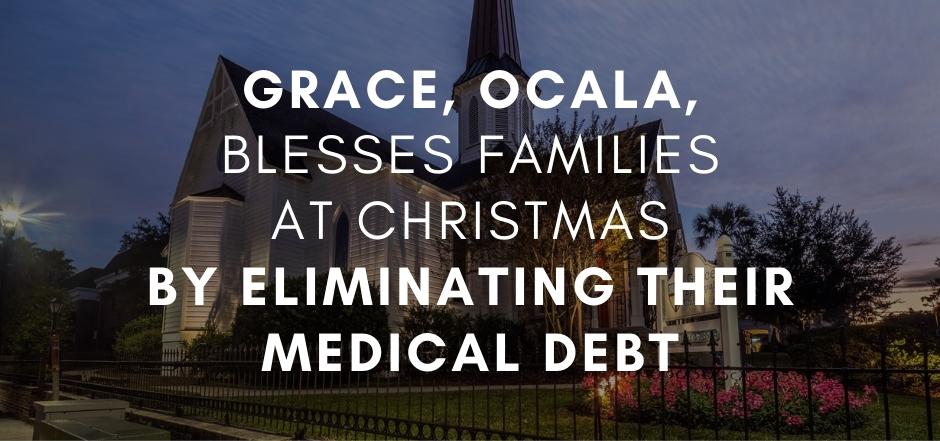For the second year in a row, Grace, Ocala, has eliminated medical debt through Christmas donations from church members and strategic partnerships. “We have now bought $750,000 in medical debt,” said The Rev. Jonathan French, rector.
“Someone told me about RIP Medical Debt in 2020,” French explained. “Then I found something from them in my email that my filter didn’t catch. I researched it, and I fell in love with it!”
He discovered that RIP Medical Debt, based in Long Island City, New York, can parlay every $1 donation into the elimination of $100 of medical debt. “I can give them a small amount of money, and they can pay off 100 times that in medical bills,” French explained. “They buy the medical debt at a steep discount, and together we wipe out medical debt.”
“Often near Christmas, some parishioners will give me money to give to someone in the community,” he added. “In 2020, a parishioner donated $1000. I went to the vestry with the donation and the information about RIP. They were all for it.”
“In 2021, parishioners made a donation totaling $6,500 to be used to bless someone in the community,” French said. “We again used RIP’s services and were able to eliminate $650,000 in medical debt for people in Marion County.”
Paying off medical bills at Christmas may become a tradition at Grace. “It’s up to the church to decide if we get to continue to bless others,” French said.
RIP buys portfolios of medical bills for pennies on the dollar. The organization combines generous donations with debt-industry expertise to rescue those who earn less than twice the federal poverty level and have debts that constitute 5% or more of their annual income, or insurmountable debt.
Although donors can’t target a specific recipient for the debt cancellation, the RIP program allows them to specify if they want to pay off debt on national, state or county levels.
Once medical debts are forgiven, RIP sends letters to those whose accounts are now paid in full. “The company often has to send three or four letters because the recipients often think it’s a ruse by a collection agency,” French explained. “When the recipients realize that this is actual debt forgiveness, they write thank-you letters to RIP.”
Donors receive snippets of the letters, French said. “They can’t believe that their debt is forgiven. They thought that they’d never be out of debt, and they would not be without this gift.”
In addition to paying off the bills, RIP also has the outstanding debts removed from credit reports. Since RIP does not send the recipients a 1099 form, there are no tax ramifications. “This is a Christmas gift that keeps on giving,” French said.
Unlike other types of consumer debt, medical bills are hard to predict and prevent, even for people with health insurance. A common misconception is that medical debt primarily affects uninsured patients. However, 62% of those with medical debt had insurance coverage when receiving care.
Another common assumption is that medical debt arises from ongoing treatment for chronic illnesses and conditions. Not so. Medical debt stems from uncontrollable and unpredictable circumstances, emergencies, accidents and illness. Short-term or one-time events cause two-thirds of all medical debt.
According to new data from Debt.com, a consumer financial education company, 50% of Americans now carry medical debt, up 46% from 2020.
“God has paid my debt that I had no power to pay,” French said. “Those people have no idea who paid their debt. The program is a great model of Christianity.”
If your parish is interested in having a drive to pay off others’ medical debts, please go to ripmedicaldebt.org.

